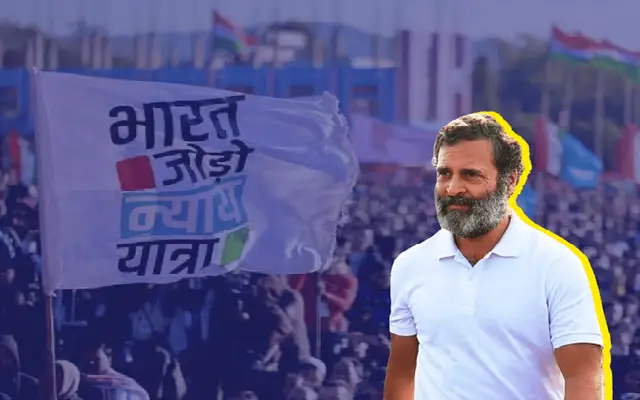Standing atop a red Jeep amidst a churning crowd in Varanasi, Rahul Gandhi embarked on a mission to challenge the Indian government, armed with a microphone in hand. This marked Day 35 of his Bharat Jodo Nyay Yatra, a journey spanning 15 states and 4,100 miles across India. Gandhi’s aim was clear: to unseat Prime Minister Narendra Modi and his Bharatiya Janata Party (B.J.P.) in the upcoming parliamentary elections starting on April 19. However, Gandhi faced an uphill battle as the Indian National Congress, his party, had languished in political obscurity for a decade, holding fewer than a tenth of the seats in Parliament.
During his speeches, Gandhi addressed the crowd’s concerns, highlighting issues of unemployment and poverty plaguing India under Modi’s leadership. He criticized the dominance of oligarchs in media, the plight of farmers and workers ignored by news channels obsessed with Modi, and the alarming unemployment rate among recent college graduates. Despite his impassioned rhetoric, Gandhi faced challenges garnering enthusiastic support, with tepid responses and minimal applause from the crowd.
Gandhi’s political journey is intertwined with the legacy of his family, deeply rooted in India’s political landscape. As the scion of the Nehru-Gandhi dynasty, he carries the weight of their triumphs and failures. His great-grandfather, Jawaharlal Nehru, India’s first prime minister, established a secular vision for the country. However, subsequent generations faced setbacks, including corruption scandals and electoral losses, leading to the decline of the Congress Party’s influence.
Modi’s rise to power capitalized on public discontent, portraying Congress as weak and responsible for India’s woes. His administration advanced a Hindu nationalist agenda, epitomized by controversial citizenship laws excluding Muslims and eroding minority rights. Dissent against the government faced repression, with activists and journalists targeted and media freedom curtailed.
Gandhi’s approach to politics reflects a commitment to ideological resistance and grassroots activism. He models himself after Mahatma Gandhi, engaging in yatras (political journeys) reminiscent of the independence leader’s mobilization efforts. However, Gandhi’s leadership within Congress has faced internal challenges, with traditional party structures resistant to change and entrenched interests hindering reform efforts.
The yatra through Uttar Pradesh, a politically pivotal state, highlighted the Congress Party’s struggles. Once a stronghold of the Gandhis, Uttar Pradesh has become a bastion of Hindu nationalism under the B.J.P. Modi’s narrative of a resurgent Hinduism resonates with voters, overshadowing Gandhi’s appeals for social justice and pluralism.
Despite setbacks, Gandhi remains committed to his vision of a fairer, more tolerant India. His interactions with ordinary citizens, such as the emotional encounter with Amit Maurya in Raebareli, reveal a genuine concern for people’s welfare. However, Gandhi’s challenge lies in translating this empathy into electoral success amidst the B.J.P.’s formidable political machinery.
As the election approaches, Gandhi faces uncertainty about the Congress Party’s prospects. While he strives to inspire hope and mobilize support, he grapples with the limitations of his party’s organizational structure and entrenched rivalries. Nevertheless, Gandhi’s resilience and determination embody a larger struggle for the soul of Indian democracy, where ideals of justice and equality confront the forces of authoritarianism and exclusion.
In the end, Gandhi’s journey symbolizes a broader quest for the preservation of democratic values in India, where the outcome remains uncertain, yet the stakes are undeniably high. Whether he can succeed in revitalizing Congress and reclaiming its political relevance remains to be seen, but his endeavor resonates as a testament to the enduring struggle for a more inclusive and equitable society.

















